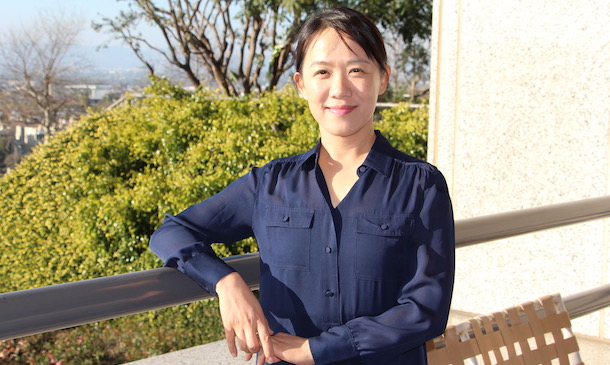Cross-Cultural Language Immersion

Yu Li, LMU Professor of Modern Languages & Literatures, accompanies students on global explorations that revolve around collaborative discovery, learning, and growth. Earning a doctorate in Linguistics at the University of North Carolina at Chapel Hill, Li strives to transform students into members of society who think creatively and critically, act courageously, and care deeply through the study and analysis of language and its cultural underpinnings.
“Language is a part of what makes us human and is indispensable to the existence and thriving of our cultures,” Li, who grew up in Shijiazhuang, the capital city of China’s Hebei Province, said. “Through linguistic learning, I strive to help students develop greater understandings about who we are, how we are different, and why we have so much in common.”
For Li, facilitating such transformative learning experiences is done most effectively by offering students opportunities for interdisciplinary inquiry and community-engaged learning. Case in point, students in Li’s “Chinese III” course recently created a Virtual Reality (VR) tour of LMU’s William Hannon Library with the intention of helping to better serve LMU’s multicultural campus community. With the help of LMU Librarian Raymundo Andrade and LMU Information Technology Services, students highlighted key library locations and then created Chinese language videos introducing each, as well as accompanying 3D photos and other multimedia materials.
“The students reflected on how their academic work on this project acquired additional value by the act of working to serve others,” Li said. “LMU students are highly motivated and engaged learners. They know what they want and work hard to pursue it.”
Drawn to LMU for its mission “to educate the whole person” and its top ranked LMU Bellarmine College of Liberal Arts, Li was further intrigued by the opportunity to become the university’s Chinese program coordinator and work to build a community of students and scholars interested in celebrating and learning more about Chinese culture.
“Each event hosted by the Chinese program is an occasion that brings members of LMU’s diverse community together in the spirit of cross-cultural kinship and in order to learn more about one another,” Li said.
“Many of my students are not Modern Languages majors or Chinese minors,” Li said. “My courses on Chinese calligraphy, the Chinese writing system, and the introductory course on linguistics are popular because many students do recognize the value in learning about another culture and are interested in cultivating their creative and critical thinking skills while doing so.”
Li added that LMU and its location in Los Angeles provides a supportive environment for her own interdisciplinary research. She is currently working on a “linguistic landscape” project that examines the use of a particular typeface designed to represent “Chinese-ness” in LA’s three historical Chinatowns and the surrounding suburban Chinese communities. Additionally, Li’s book, “The Chinese Writing System in Asia: An Interdisciplinary Perspective,” was published last year by Routledge (London, 2020).
As for what advice she has for new and future LMU Lions?
“I encourage them to learn a new language during their time at LMU and, along with it, a new culture,” Li said. “Even if you do not reach advanced proficiency, the experience of thinking and perceiving in another language is in itself horizon-broadening, a new way of seeing and being and caring about the world.”